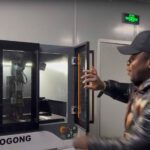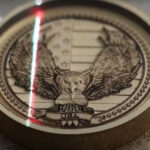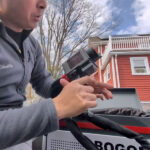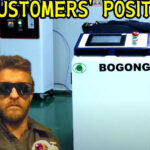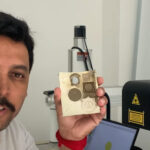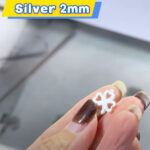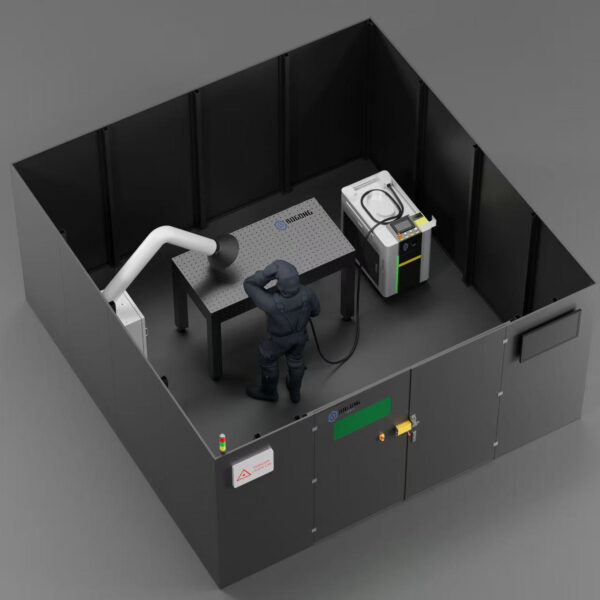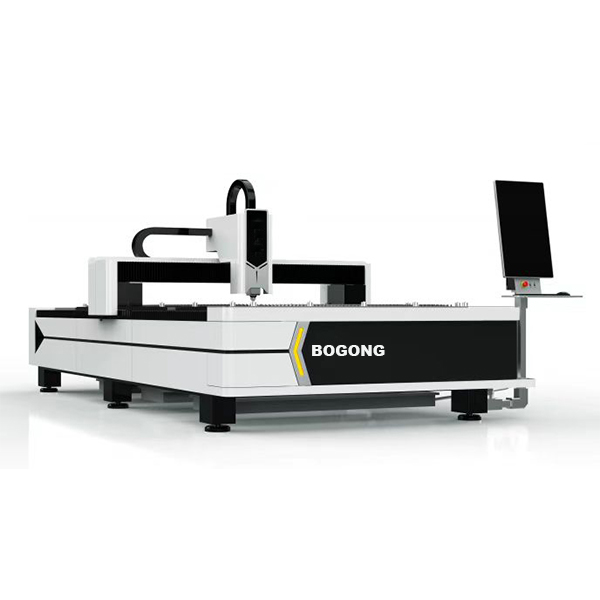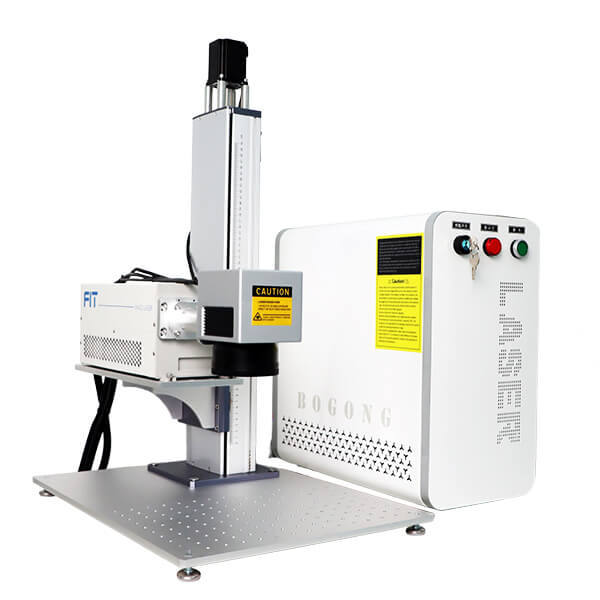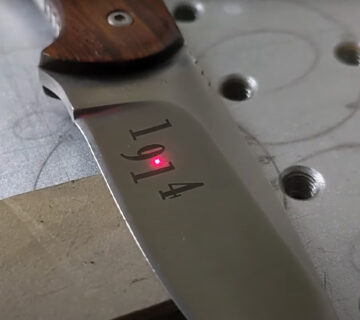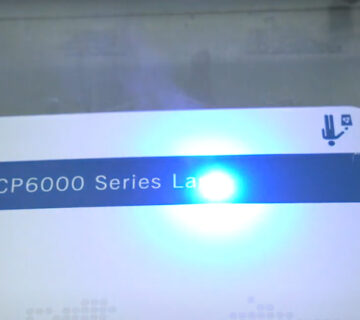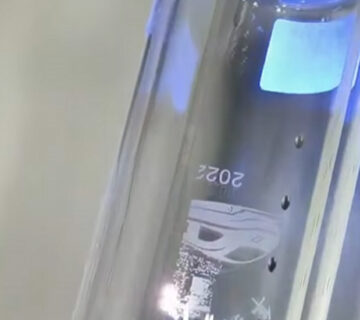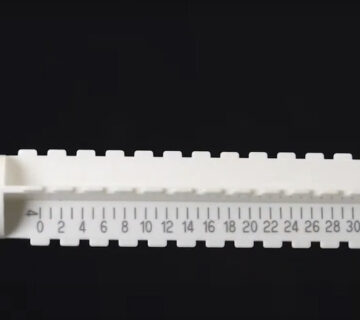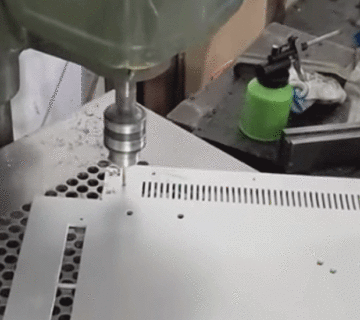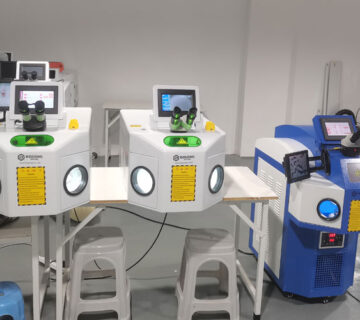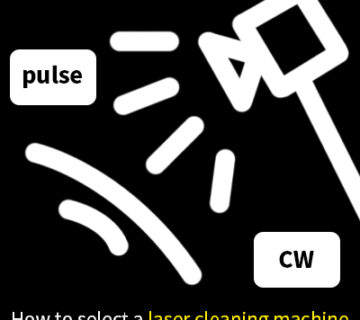Why contact lens packaging needs special marking
Contact lenses are packed in small PP cups sealed with foil lids. Sounds simple, but it’s tricky when you try to print traceable info directly on them. Ink smears, labels peel off, and heat-based printing can ruin the seal. That’s where a آلة الوسم بالليزر comes in. Instead of relying on inks, the UV beam interacts with the material itself. The mark is permanent, high-contrast, and doesn’t weaken the package.
Many manufacturers are already moving to laser because regulators like FDA and EU MDR demand unique device identification (UDI) codes on medical packaging.
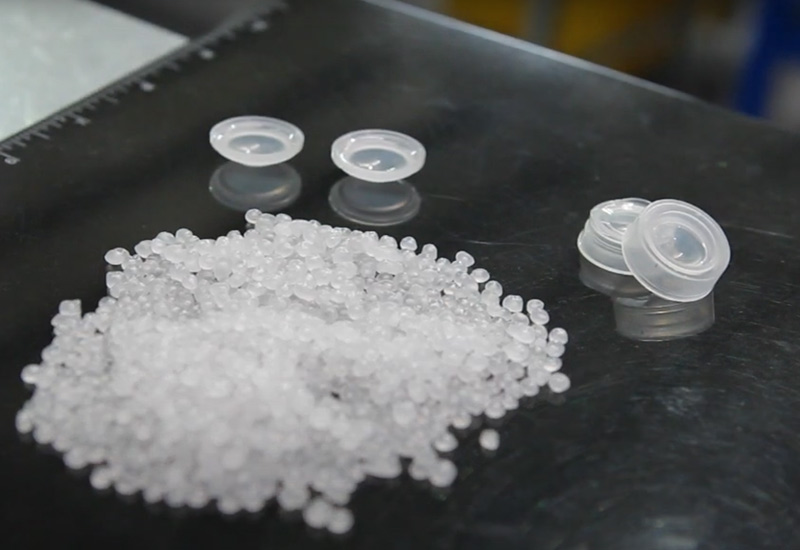
UV over other lasers – cold marking advantage
UV lasers work with a “cold process.” Instead of burning the surface, they break chemical bonds directly. This means:
Minimal heat effect – no warping of thin foil or PP.
High absorption – PP, PET, coated foil, even glass vials all respond well.
Sharp detail – you can get micro text and scannable DataMatrix codes.
Compare that with fiber or CO₂ lasers:
Fiber works best on metals, struggles with clear plastics.
CO₂ can cut cardboard fine but leaves melted edges on blister packs.
Here’s a quick view:
| الميزة | UV Laser (355 nm) | ليزر الألياف | الليزر CO₂ ليزر |
|---|---|---|---|
| Heat effect | Very low | متوسط | عالية |
| Best for | Plastics, foils, glass | المعادن | Paper, wood, cartons |
| Mark contrast | Strong | Weak on clear plastics | Poor on PP |
| Common issue | Need stable optics | Burns plastics | Melts foils |
Tackling curved and uneven surfaces
Contact lens blisters aren’t flat. They’ve got cups, lids, and steps. With a flat-field marker, you’d lose focus on curved parts. That’s where a آلة وسم الليزر بالأشعة فوق البنفسجية ثلاثية الأبعاد shines. The 3D galvo head adjusts focus in real time, so you still get crisp codes across the surface.
Marking a PP cup with a foil cover—different heights, different reflectivity. Traditional methods give patchy codes. With 3D UV, the mark looks consistent and your scanner reads it instantly.
Compliance and traceability
In the medical device world, packaging is as critical as the product itself. Regulations require:
UDI codes: batch, serial, and expiry.
Permanent, legible marks: survive handling and sterilization.
No compromise on sterile barrier: marks mustn’t puncture foil or weaken seals.
Laser is the cleanest path here. No consumables, no extra drying time. Just scan-ready codes straight out of the packaging line.
Pain points solved with UV
Foil bubbling: when heated marking methods disturb the seal.
Ink fading: sterile environments don’t allow aggressive inks; even if used, solvents may react with the product.
Mis-reads: codes on curved surfaces end up blurry.
A آلة وسم الليزر فوق البنفسجي removes all three. The cold beam doesn’t heat, no ink to fade, and with 3D focus control the curvature problem disappears.
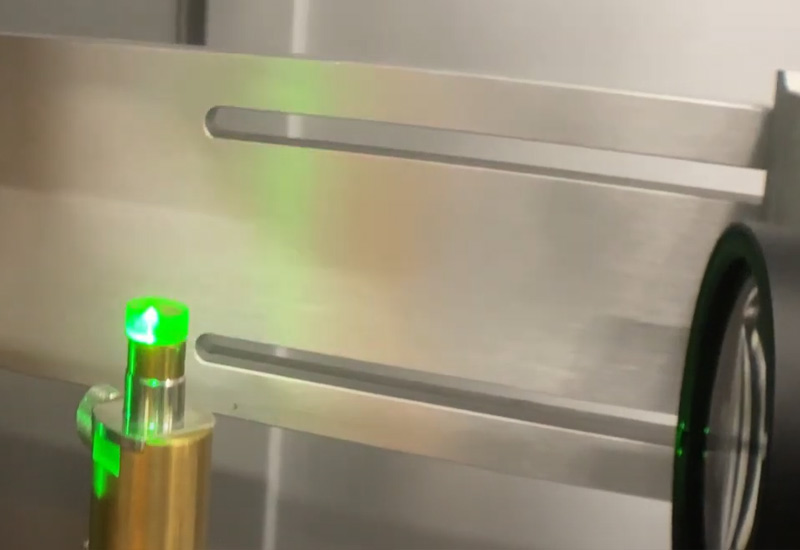
Actual packaging setups
Different packaging types bring different challenges:
PP blister cups + foil lid: most common. Mark on the PP side to avoid seal risk.
Glass vials for specialty lenses: UV laser gives permanent, scratch-resistant codes.
Carton outer boxes: a Fiber or CO₂ Laser Marking Machine can pair with UV for secondary packaging.
For example, they’ll run a آلة وسم الألياف بالليزر for carton codes and a UV unit for direct blister marking.
Sustainability and cost edge
Companies in eyewear are under pressure to cut waste. Inks and labels mean consumables, storage, and disposal. UV laser needs none. The machine draws power, but you’re not stocking ink, rolls, or printheads. That’s less downtime and cleaner operation.
In addition, UV lasers support recyclable packaging—marking directly on bio-based PP without adhesives or extra coatings. For brands chasing eco labels, that’s a big plus.
Why 3D UV fits medical packaging best
The combination of three features makes it stand out:
Cold processing – safe on thin foils and films.
3D focus – consistent code quality even on blister shapes.
Permanent, scannable marks – compliant with UDI, no consumables.
When you add it all up, the choice is clear for anyone in the contact lens field.
Key value points for contact lens packaging
| Problem | Traditional Methods | 3D UV Laser Fix |
|---|---|---|
| Seal damage | Heat transfer lifts foil | Cold beam keeps seal intact |
| Ink issues | Smudging, solvents banned | No ink, pure laser code |
| Curved surfaces | Blurry or unreadable marks | 3D galvo keeps focus sharp |
| Traceability | Codes wear off | Permanent UDI marks |
| Sustainability | Ink waste, label waste | Zero consumables |
Where BOGONG Laser comes in
بوغونغ ليست مجرد Laser Marking Machine Manufacturer. With years in the field and projects across 160+ countries, the factory understands real production headaches—line integration, code quality, and compliance checks.
With OEM/ODM support, CE, ISO9001, and FDA certifications, BOGONG Laser positions as a trusted partner, not just a machine vendor.
الخاتمة
For contact lens packaging, the آلة وسم الليزر بالأشعة فوق البنفسجية ثلاثية الأبعاد answers the tough questions: compliance, readability, seal safety, and sustainability. It does the job without ink, without heat, and without waste.
If you’re running a production line and need stable, compliant, and eco-friendly marking, it’s worth looking at what BOGONG Laser offers.

